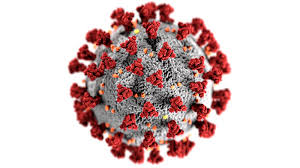A Common Misconception about Coronavirus Explained
When it comes to helping protect people from the negative effects of coronavirus the vast majority of Americans mistakenly believe 2 things.
They believe there’s nothing they can do to fight an infection.
And they believe that COVID-19 is just a respiratory issue.
I hope you’ve realized over these past few weeks that the first premise is simply not true.
Anything (and everything you do) to help support a healthy immune system will help you resist a coronavirus infection. While boosting immune system function isn’t guaranteed to keep you from getting infected, there’s little doubt if your body can present a strong immune response to coronavirus it increases your chances of resisting the virus.
As for the second misconception, I’d like to show you why taking care of your cardiovascular system is critically important to fighting off a coronavirus infection.
I believe that if more people (as well as more physicians) had known this at the onset of the pandemic we’d be in a much better position to fight this virus.
Here’s How A Strong Cardiovascular System May Help to Resist Death By Coronavirus
A strong cardiovascular system serves as the foundation of a healthy body. Your heart’s ability to pump fully-oxygenated blood throughout your body is what allows every system in your body to work perfectly.
Without oxygenated blood coursing through your arteries and veins nothing will happen to help support life.
What’s critical to total, cellular health is the level of oxygen your blood is able to carry.
As soon as there’s a reduction in the amount of oxygen your blood carries, your cells and organs will suffer.
Here’s why that matters in a coronavirus infection.
While coronavirus primarily affects the lungs, the truth is the disease it causes isn’t entirely a respiratory illness.
What doctors in ICUs all over the nation are observing is that when a person is admitted into their care the #1 thing they’re suffering from is hypoxia.
Hypoxia Is The Problem
Hypoxia isn’t something the average person is used to encountering.
For instance, one of the most typical causes of hypoxia is when a person travels from sea level to high altitude experience. When a person goes from a highly-oxygenated environment to an environment with lower oxygen (low to high altitude) their lungs fail to oxygenate blood optimally and a person will become sick as a result.
This is basically what’s happening to people with a coronavirus infection.
All of the sudden their bodies are failing to oxygenate red blood cells and this leads to organ failure.
The medical definition for hypoxia is as follows:
Hypoxia is a condition in which the body or a region of the body is deprived of adequate oxygen supply at the tissue level. Hypoxia may be classified as either generalized, affecting the whole body, or local, affecting a region of the body.
Now the first reason that coronavirus causes hypoxia is because the virus causes inflammation in the lungs which prevents the body from extracting oxygen from the breath (as occurs in normal respiration).
This is why people are being put on ventilators left and right, because all of the sudden their respiration is compromised and doctors use ventilators to bypass the lungs and help oxygenate the blood.
And while this is true… the misconception that many people have is that ventilators will help cure a person of hypoxia.
In fact, 84% of people who end up being put on a ventilator will die, which is abnormally high given that ventilators help people breathe when the lungs are unable to function properly.
The reason why this is happening is because of how coronavirus affects a person’s red blood cells.
The coronavirus actually compromises the red blood cells’ ability to transport oxygen throughout the body. Which is why even when a person is placed on a ventilator they still might die. The details on why this happens are still being explored, but we suspect it has to do with how coronavirus prevents oxygen from binding to hemoglobin on red blood cells.
It matters very little that a person can breathe with the aid of a machine if the red blood cells can’t accept the oxygen and shuttle it throughout the body.
And this is why it’s incredibly important to understand the relationship between cardiovascular health and coronavirus mortality risk.
As you’ve no doubt heard already, people with pre-existing health conditions are at a much higher risk of death by coronavirus.
Easily one of the leading health risks that might cause death by coronavirus is high blood pressure.
Evidence Suggest High Blood Pressure Contributes to Coronavirus Death Risk
High blood pressure poses a substantial risk to cardiovascular health.
And likewise, it presents a clear risk factor in coronavirus infections.
Evidence suggests that when a healthy person deals with hypoxia (i.e. oxygen levels are limited during respiration) their body will respond by simply increasing blood flow to compensate for lowered oxygen levels.
When a person with high blood pressure experiences a situation where they’re “going hypoxic” their body cannot simply “increase blood flow” because their heart is already pushing as much blood through the arteries and veins as it can.
Meaning there’s simply no way for a person with high blood pressure to amplify blood flow to enhance oxygen delivery.
Thus, when a person with high blood pressure is hit with a coronavirus infection they’re left to deal with two distinct issues that limit oxygen delivery to the body.
And THIS is why it’s critical for people concerned with a coronavirus infection to deal with blood pressure issues now, instead of later.
7 Quick Ways to Lower Blood Pressure
While high blood pressure certainly contributes to coronavirus mortality risk the good news is most people can tackle high blood pressure and bring it down in just a few weeks.
Here are 7 things I recommend that are safe, natural, and proven to work: I’ve also provided links to articles I’ve written that you can use to help in these quests.
- Improve Blood Sugar
- Lose weight
- Exercise regularly
- Eat a healthy diet
- Limit the amount of alcohol you drink
- Reduce your stress
- Balance nutrients through supplementation


